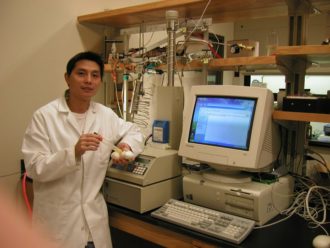GRIFFIN, Georgia – The Sustainable Agriculture Research and Education (SARE) program will be holding a free webinar on December 15 for Master’s and PhD students interested in learning more about and applying for Graduate Student Grants.
Graduate Student Grant program coordinators from each SARE region (Southern, Western, Northeast and North Central) will present an in-depth, “nuts and bolts” presentation on preparing a competitive proposal. Southern SARE’s presentation will take place on December 15 at 10:30 a.m. EST (9:30 a.m. CST).
The webinar is free, but registration is required. To register for the webinar visit https://www.apsnet.org/edcenter/resources/Webinars/Pages/SARE.aspx
An overview webinar of the SARE program and the Graduate Student Grants is available on the registration page. Graduate Students are encouraged to view the overview prior to the December 15 webinar presentation.
Graduate Student Grants are offered by all of the SARE regions. These grants are intended for Master’s and PhD students at accredited institutions who are interested in conducting sustainable agriculture research during their graduate program.
The Call for Proposals for Graduate Student Grants in the Southern region opens in February 2021 and is awarded in August of the same year. Learn more about this grant opportunity in the Southern region. For more information about Graduate Student Grants or the Graduate Student Grant webinar, contact Candace Pollock-Moore at cpollock@uga.edu or call 770-412-4786.
Published by the Southern Region of the Sustainable Agriculture Research and Education (SARE) program. Funded by the USDA National Institute of Food and Agriculture (NIFA), Southern SARE operates under cooperative agreements with the University of Georgia, Fort Valley State University, and the Kerr Center for Sustainable Agriculture to offer competitive grants to advance sustainable agriculture in America's Southern region. This material is based upon work that is supported by the National Institute of Food and Agriculture, U.S. Department of Agriculture, through Southern Sustainable Agriculture Research and Education. USDA is an equal opportunity employer and service provider. Any opinions, findings, conclusions, or recommendations expressed in this publication are those of the author(s) and do not necessarily reflect the view of the U.S. Department of Agriculture.
